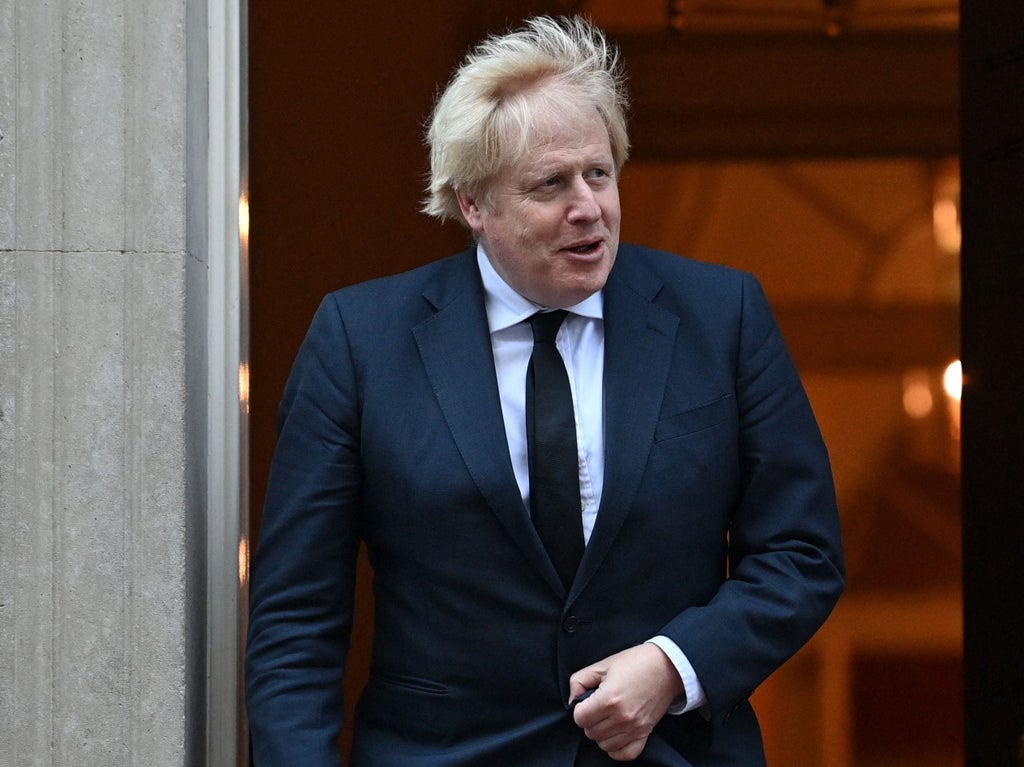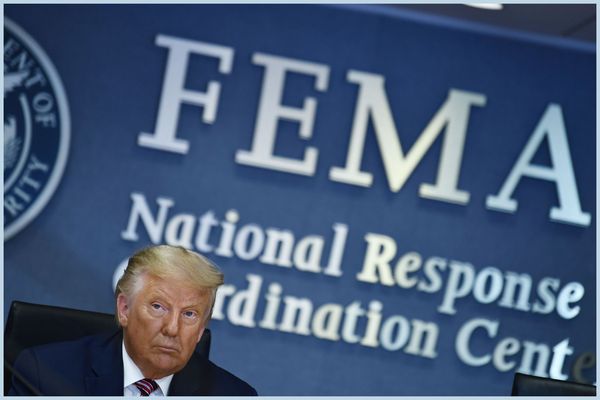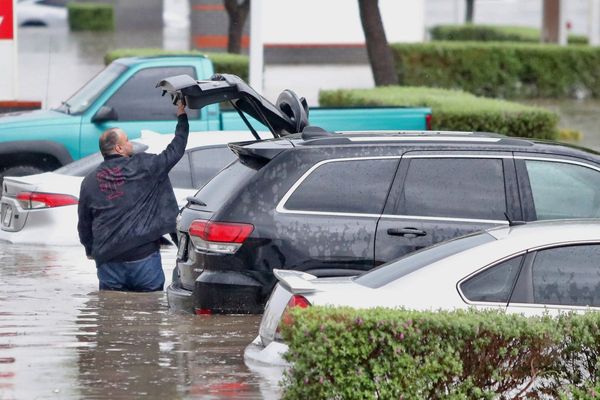
Boris Johnson’s future as British prime minister hangs in the balance after a string of media reports emerged in December and January alleging a series of lockdown-breaking parties were held at 10 Downing Street over the course of the coronavirus pandemic as the public observed and endured the tough social restrictions then in place.
Conservative MPs have long backed Mr Johnson in the belief that he is a sure-fire election winner popular with voters but are now beginning to revise their opinion following his disastrous recent run of outrages and gaffes.
The prime minister was photographed taking part in a cheese and wine social in the Downing Street garden on 15 May 2020 and has apologised to the House of Commons for his attendance at another rule-breaking gathering on the same lawn five days later, insisting he had no prior knowledge of it and “implicitly believed it was a work event”.
His estranged former adviser Dominic Cummings has since alleged that Mr Johnson did know about the party in advance, which, if true, would mean he has lied to Parliament, rendering his position untenable.
The PM’s apparent contrition likewise cut little ice with opposition leader Sir Keir Starmer who described him as a “pathetic spectacle of a man who has run out of road” and “without shame”, derided his mea culpa as “worthless” following “months of deceit and deception” and called on him to resign, the seething disdain in his voice drawing chuckles of laughter from across the Commons while members of Mr Johnson’s frontbench sat stoney-faced behind their Covid masks.
The PM’s subsequent insistence during a hospital visit that no one had told him the event in question was against the rules was even less convincing, given that he himself was responsible for setting those very same rules.
Much now hangs on senior civil servant Sue Gray’s forthcoming report into what went on behind closed doors - an unenviable job of disentangling a web of allegations covering everything from catered Christmas parties to wine suitcases - the outcome of which could see the clamour for Mr Johnson’s resignation become deafening.
Support from the PM’s Cabinet colleagues has been largely lukewarm, slow in forthcoming and as non-commital as possible (deputy PM Dominic Raab in particular has tied himself in knots), with senior ministers Rishi Sunak, Liz Truss and Jeremy Hunt all rumoured to be sounding out support for a possible leadership challenge.
Even before he became engulfed by “Partygate”, the prime minister was mired in “Tory sleaze” allegations surrounding Owen Paterson and then his former attorney Sir Geoffrey Cox throughout the autumn, as well as uproar over his rumoured plan to scrap the Northern Ireland Protocol and his cancellation of the northern leg of HS2, a crisis period that culminated in a disastrous speech to the Confederation of British Industry Annual Conference.
There, Mr Johnson imitated a revving car engine, waxed lyrical about a recent trip to Peppa Pig World and lost his place in his notes, spending an excruciating 21 seconds desperately rifling through loose pages and muttering apologies.
The assembled executives were left perplexed, having attended in the hope of hearing something constructive about the state of Britain’s stumbling economic recovery, post-Brexit trading conditions and the ongoing disruption to the supply chain caused by Covid and the HGV driver shortage.
For some of the prime minister’s own Conservative MPs, enough is enough.
A number of backbenchers are said to have written to Sir Graham Brady, the chair of the 1922 Committee, expressing their discontent with Mr Johnson’s leadership already, pre-empting Ms Gray’s finding.
Under Conservative Party rules, a leadership contest is triggered if 15 per cent of sitting Tory MPs write to its executive committee, whose 18 members meet weekly to discuss party affairs, demanding a change at the top. Currently, that would equate to 54 letters from the party’s pool of 360 MPs.
No confidence letters are handed in confidentially under party rules, so there is no accurate, publicly available tally of how many have been submitted.
Should Sir Graham eventually receive enough to proceed, the prime minister would then need to secure 50 per cent of thevote to survive, without which he would be forced to step down.
If he were to secure a majority, his prize would be the guarantee of a full-year’s immunity from further no-confidence challenges, potentially giving him time to steady the ship, rebuild alliances and strengthen his grip over the parliamentary party.







